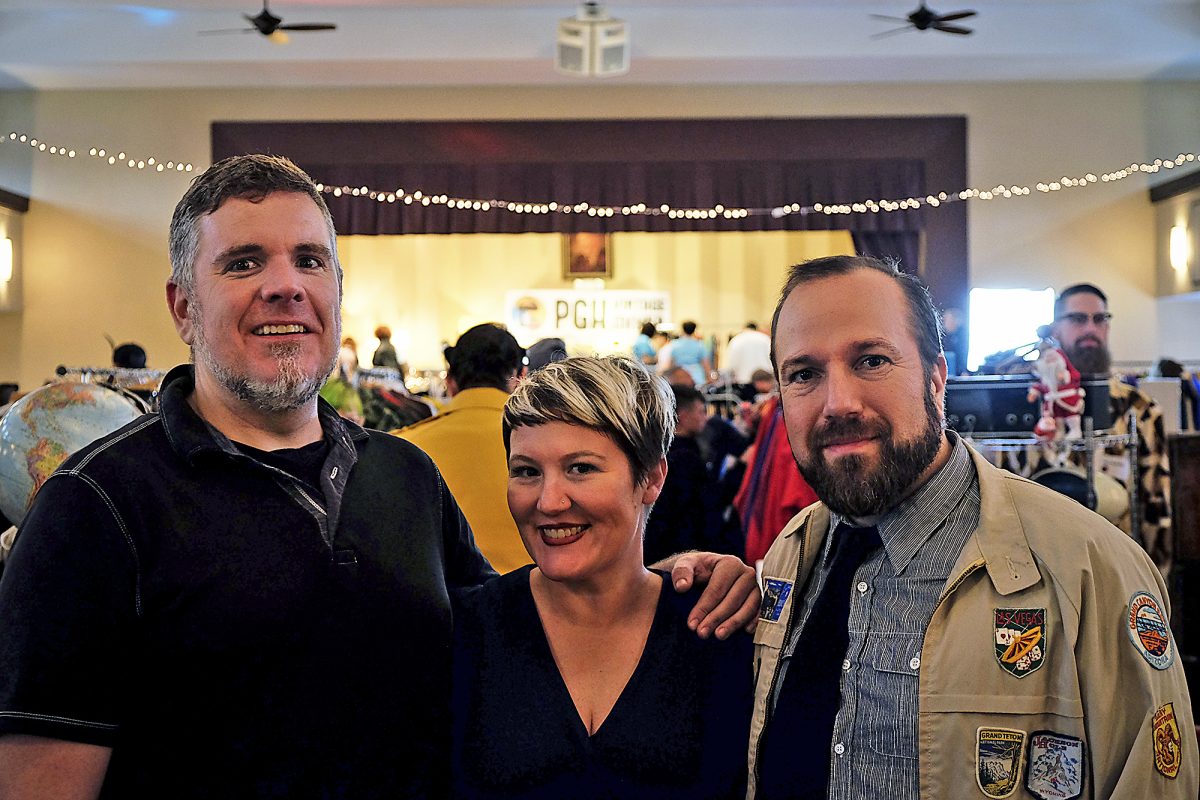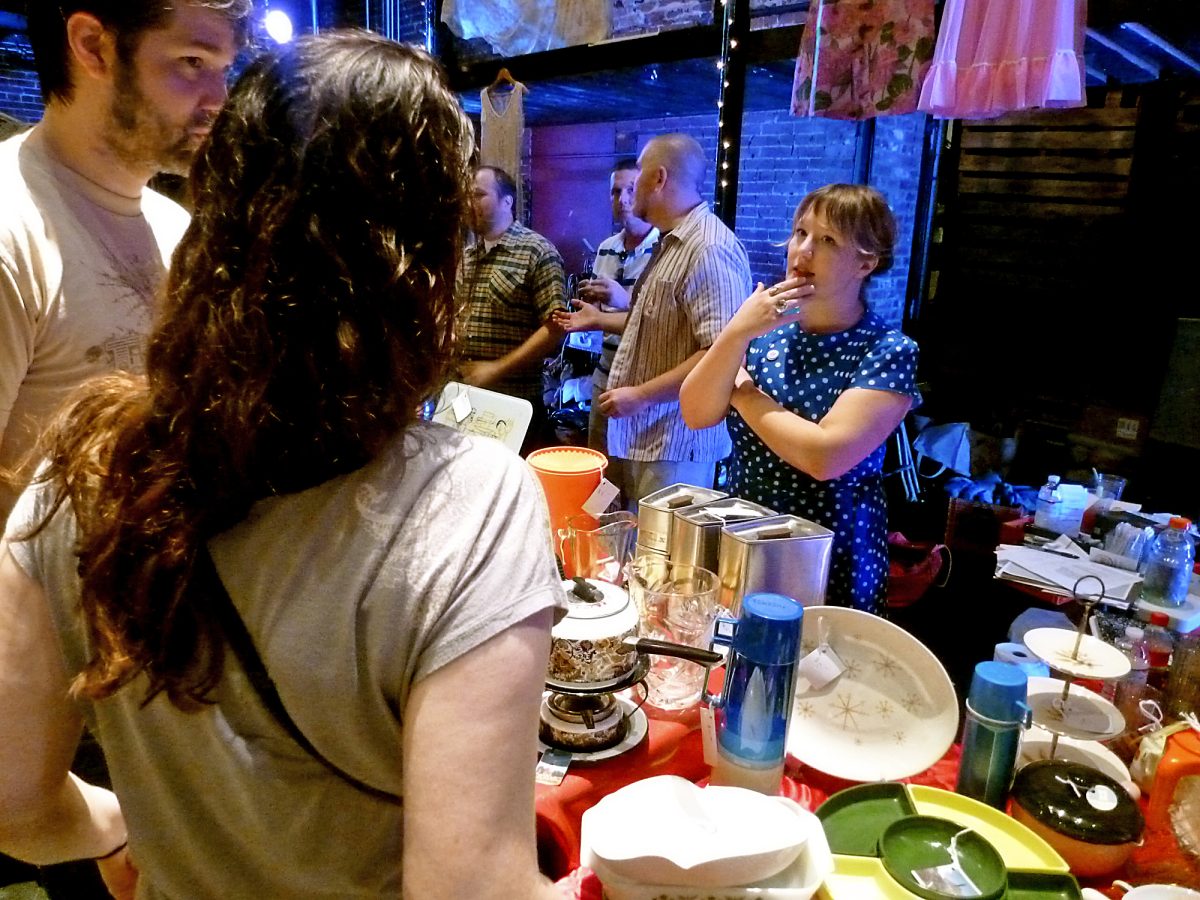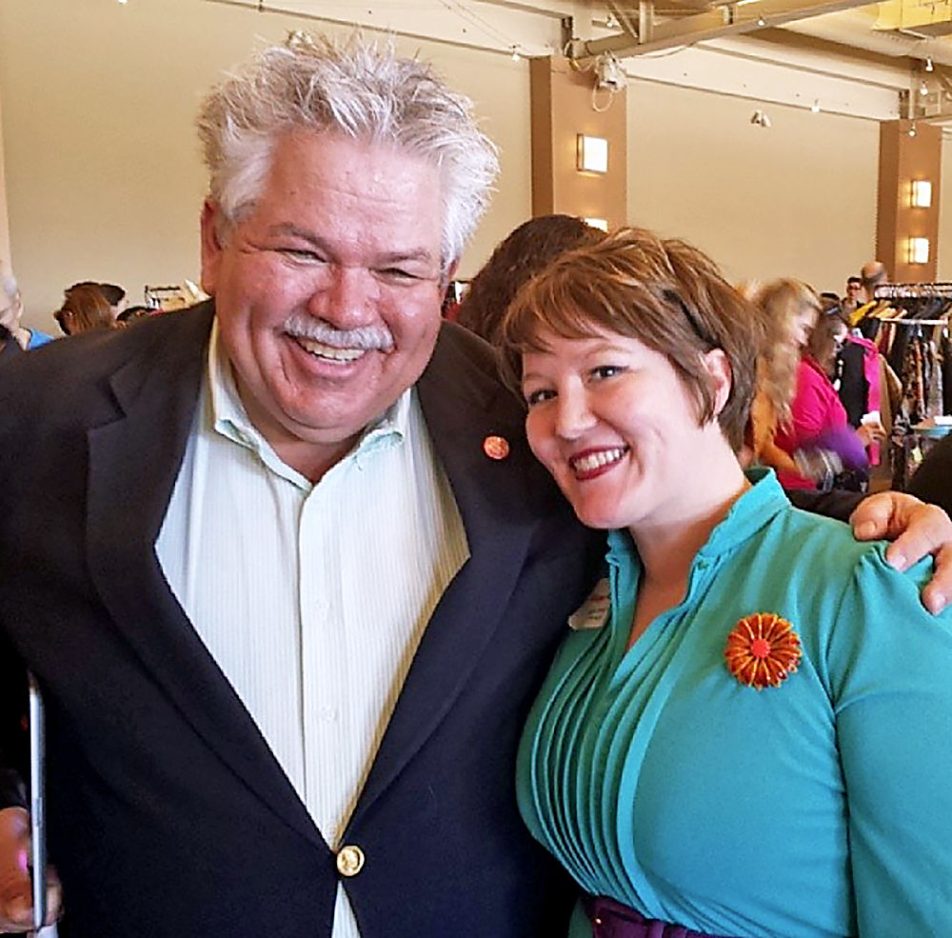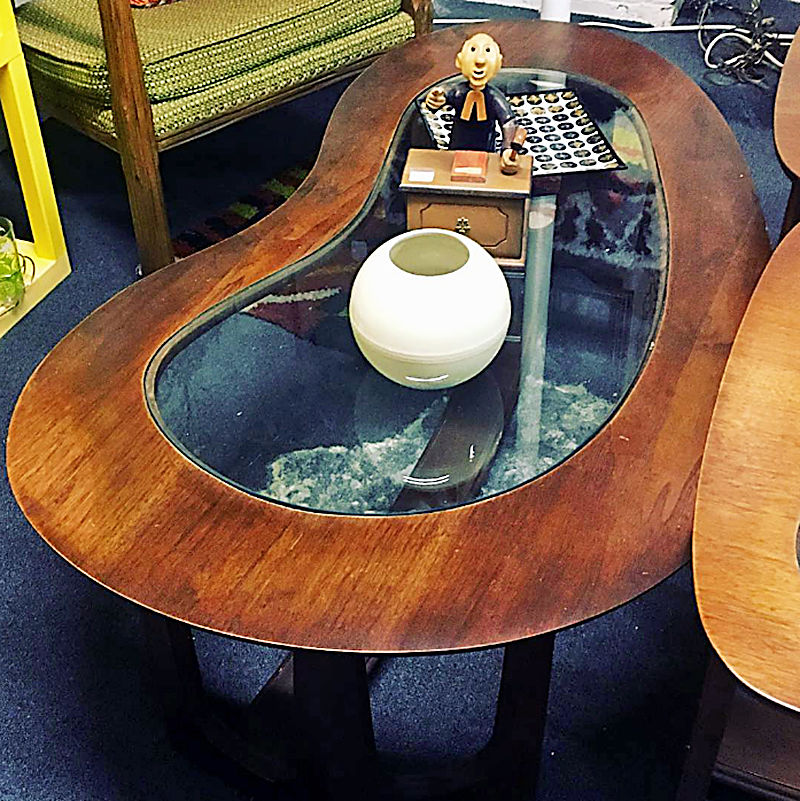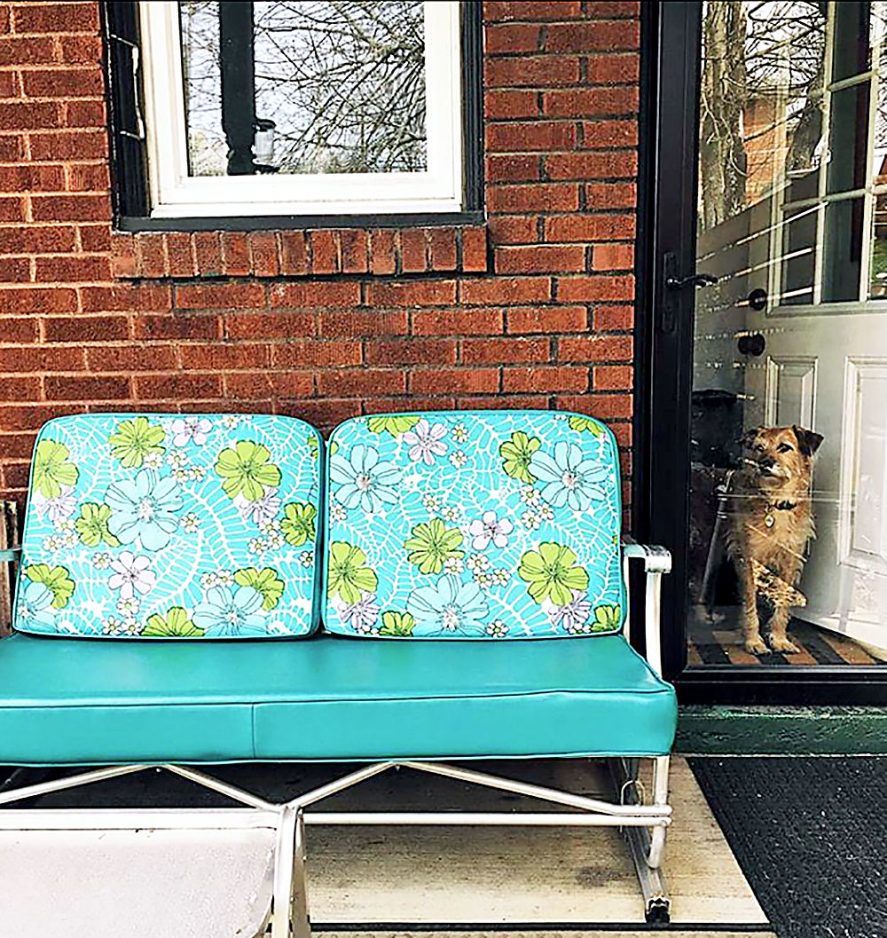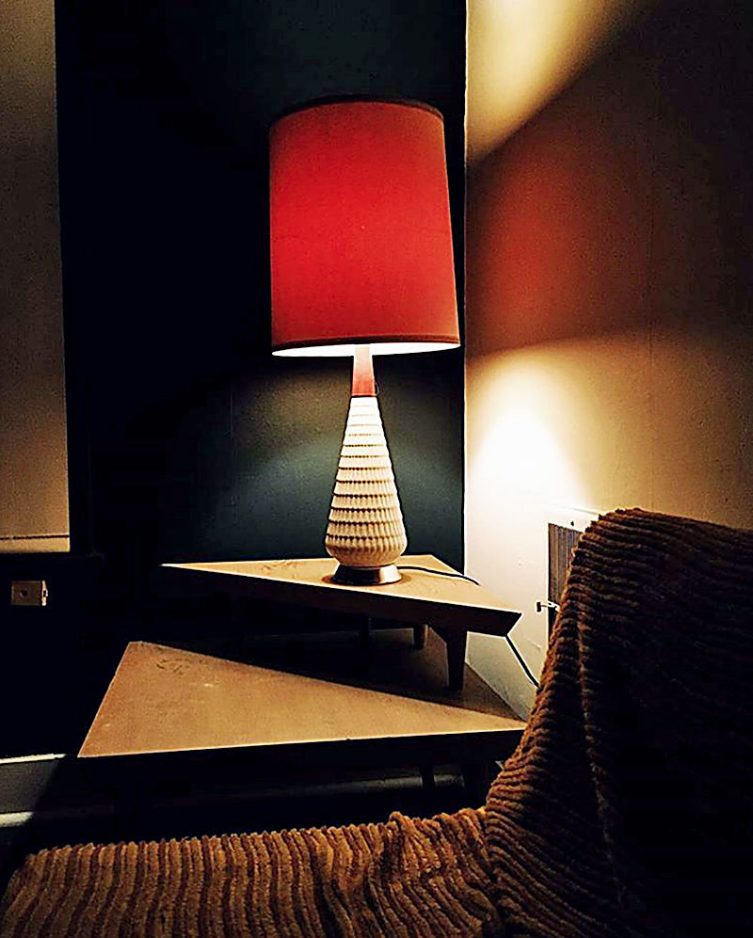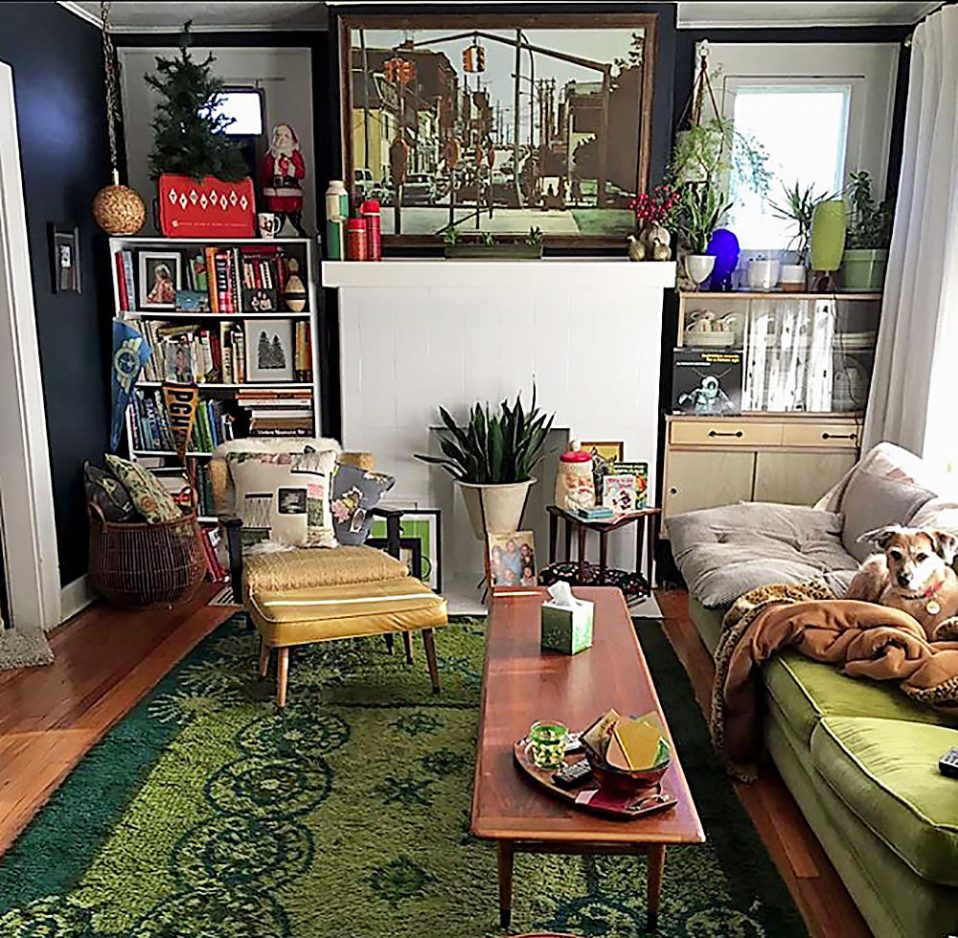Washington natives’ vintage mixers draw Pittsburgh crowds
WQED-TV’s venerable director Rick Sebak chatted up a dealer of vintage goods in 2017, and he said, “We have to go down to Dunlevy.”
He was speaking with Washington native Bess Dunlevy, who, along with her two business partners, had gotten to know Sebak through their popular flea market extravaganza and party known as the Pittsburgh Vintage Mixer.
“I’m in the back seat of his car and he’s narrating all the way there,” said Dunlevy, a Washington native who now lives in Castle Shannon.
Their destination was the White Barn Supper Club along Route 88 in Dunlevy, a 1940s-style Mon Valley bar and restaurant known for its home-style menu in large portions, especially its mountainous baked potato.
Sebak marked the occasion with an Instagram post of the group, adding the hashtag “withDunlevyinDunlevy,” in a witty fashion not unlike the phrases he uses while narrating his shows.
Other than their shared name, Dunlevy has no other connections to the tiny Mon Valley borough.
Sebak said he thought it was a great place to have dinner with Dunlevy and her two business partners, Jason Sumney, another Washington native, and Michael Lutz of Springdale.
“It was the perfect place. The White Barn Supper Club is so vintage,” Sebak said.
He later dedicated an episode of his new “Nebby: Rick Sebak’s Tales of Greater Pittsburgh” series to the mixers. The 30-minute show focused on the three business partners, quirky vendors and folks who purchased anything from bulky mid-century modern lamps to creepy animatronic bunny rabbits.
Sebak, a natural charmer, has made a career out of documenting Pittsburgh-area history that he loves for the public television station.
He and Dunlevy met in 2012 at the first Pittsburgh Vintage Mixer at the New Hazlett Theater on Pittsburgh’s North Side.
He decided to become a mixer vendor himself after filming a short piece about the event for a show named, “What’s Rick Sebak Been Doing,” in 2014 when one of the mixers was held at Senator John Heinz History Center in Pittsburgh.
“I have a lot of stuff in my basement,” Sebak said. “I like to get rid of stuff.”
He said he got involved “because I trust my own instincts” and the vintage merchandise has an interesting history.
“They were made with less technology and more human input,” Sebak said.
With help from Sebak’s large fan base, the mixers have grown from attracting about 800 people in 2012 to about 2,000 now.
Along the way, Sebak’s friendship with Dunlevy and her business partners continued to blossom.
“I like the energy they put out, and the people like them,” Sebak said. “Bess just bubbles to the top, all three of them.”
The items for sale at these mixers must be 20 years old and tend to be furnishings from the 1940s through 1980s, in Atomic Age-inspired designs. The colors can be bold, anything from bright orange to chartreuse, to drab shades of avocado.
“I am drawn to vintage because it is very comforting and takes me right back to my youth,” said Sumney of Pittsburgh’s North Side.
“It’s like going to Grandma’s house and playing with your cousins when you are a really young child. It’s safe. It’s durable, and most of all, it is fun!”
He said he believes vintage items are popular because this is a throwaway society, in which people in their 30s and 40s rarely get things like televisions repaired.
“It’s basically cheaper to pitch the old and buy something new. So it’s a reminder that there were times when items were built to last.”
Dunlevy agrees with him, and said the vintage furniture was made with solid wood rather than particle board.
“We’re used to fast fashion,” Dunlevy said. “The handmade wool coats of our mothers, grandmothers have lasted decades.”
She also said big-box stores have caught on to the vintage craze and are now selling reproduction mid-century modern inspired goods.
“There is a recyclability about it, too,” Dunlevy said. “It reuses. People value that. Ultimately it’s about nostalgia.”
The next Pittsburgh Vintage Mixer Home Show will be held from 10 a.m. to 4:30 p.m. April 6 at Teamsters Local 249 Hall, 4071 Butler St., in Pittsburgh’s Lawrenceville neighborhood. An early session will be held from 8:30 to 10 a.m with a $15 admission. The entrance fee is $5 for the regular session, with a portion of the door fees being donated to a Pittsburgh charitable organization to be determined.


